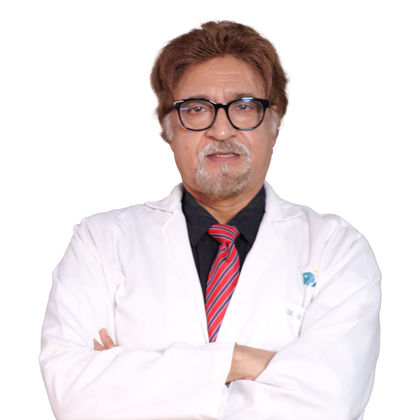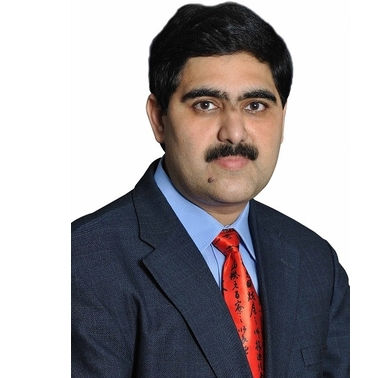Understanding Narcolepsy: Symptoms and Treatment Options
Learn about narcolepsy, a chronic sleep disorder characterized by excessive daytime sleepiness and sudden sleep attacks. Explore its symptoms, causes, and available treatment options to manage the condition effectively.

Written by Dr. Rohinipriyanka Pondugula
Reviewed by Dr. M L Ezhilarasan MBBS
Last updated on 27th Aug, 2025

Introduction
Narcolepsy is a chronic sleep disorder that affects the brain’s ability to regulate sleep-wake cycles. People with narcolepsy experience excessive daytime sleepiness and may have sudden, uncontrollable episodes of falling asleep during the day. While it is a rare condition, it can significantly impact daily life, work, and relationships.
If you or someone you know struggles with extreme sleepiness or sudden sleep attacks, understanding narcolepsy can help in managing the condition better. Let’s explore its symptoms, causes, and treatment options in a simple, easy-to-understand way.
What Are the Symptoms of Narcolepsy?
Narcolepsy symptoms can vary from person to person, but the most common ones include:
1. Excessive Daytime Sleepiness (EDS):
- Feeling extremely tired during the day, even after a full night’s sleep.
- Difficulty staying awake in normal situations like working, driving, or talking.
2. Sudden Sleep Attacks:
Falling asleep without warning, often at inappropriate times (e.g., while eating or in the middle of a conversation).
3. Cataplexy (Sudden Muscle Weakness):
- A sudden loss of muscle control triggered by strong emotions like laughter, surprise, or anger.
- This can range from mild (slurred speech, drooping eyelids) to severe (complete collapse).
4. Sleep Paralysis:
- Temporary inability to move or speak while falling asleep or waking up.
- This can be frightening but usually lasts only a few seconds to minutes.
5. Hallucinations (Vivid Dreams):
Seeing, hearing, or feeling things that aren’t real when falling asleep or waking up.
6. Fragmented Nighttime Sleep:
Waking up frequently at night, leading to poor-quality sleep.
Not everyone with narcolepsy experiences all these symptoms. Some may only have excessive daytime sleepiness, while others may have additional symptoms like cataplexy.
Consult a Sleep Medicine Specialist for the best advice
What Causes Narcolepsy?
The exact cause of narcolepsy is not fully understood, but research suggests it may be linked to:
Low Levels of Hypocretin (Orexin):
- Hypocretin is a brain chemical that helps regulate wakefulness.
- In people with narcolepsy (especially with cataplexy), the brain lacks enough hypocretin.
Autoimmune Reaction:
The immune system may mistakenly attack the brain cells that produce hypocretin.
Genetics:
Some people may have a genetic predisposition to narcolepsy.
Brain Injuries or Infections:
Rarely, head trauma or infections affecting the brain can trigger narcolepsy.
Narcolepsy is not caused by laziness, poor sleep habits, or mental illness. It is a neurological condition that requires
medical attention.
How Is Narcolepsy Diagnosed?
If you suspect narcolepsy, a sleep specialist can help diagnose it through:
1. Medical History & Sleep Diary:
Tracking sleep patterns and symptoms over a few weeks.
2. Polysomnogram (Sleep Study):
An overnight test that monitors brain activity, heart rate, breathing, and movement during sleep.
3. Multiple Sleep Latency Test (MSLT):
Measures how quickly you fall asleep during daytime naps.
Early diagnosis is important to manage symptoms effectively.
Treatment Options for Narcolepsy
While there is no cure for narcolepsy, treatments can help control symptoms and improve quality of life.
1. Medications
- Stimulants (e.g., Modafinil, Armodafinil, Methylphenidate): Help reduce daytime sleepiness.
- Antidepressants (e.g., SSRIs, SNRIs): Can help with cataplexy, hallucinations, and sleep paralysis.
- Sodium Oxybate (Xyrem): Improves nighttime sleep and reduces daytime sleepiness and cataplexy.
2. Lifestyle & Behavioral Changes
- Scheduled Naps: Short (15-20 minute) naps during the day can help manage sleepiness.
- Consistent Sleep Schedule: Going to bed and waking up at the same time every day.
- Avoiding Caffeine & Heavy Meals Before Bed: These can disrupt sleep.
- Exercise Regularly: Helps improve nighttime sleep and energy levels.
- Safety Precautions: Avoid driving or operating heavy machinery if feeling drowsy.
3. Support & Counseling
Joining support groups or therapy can help cope with emotional challenges related to narcolepsy.
When to See a Doctor?
If you experience:
- Excessive daytime sleepiness that interferes with daily life.
- Sudden sleep attacks or muscle weakness triggered by emotions.
- Sleep paralysis or hallucinations.
Consult a sleep specialist for proper evaluation and treatment.
Final Thoughts
Living with narcolepsy can be challenging, but with the right treatment and lifestyle adjustments, many people lead fulfilling lives. If you suspect you or a loved one may have narcolepsy, don’t hesitate to seek medical advice.
Consult a Sleep Medicine Specialist for the best advice
Consult a Sleep Medicine Specialist for the best advice

Dr. Shiba Kalyan Biswal
Pulmonology Respiratory Medicine Specialist
18 Years • MBBS,MD,DM(AIIMS Delhi)
Gurugram
APOLLO SUGAR CLINICS GURUGRAM, Gurugram

Dr. Suresh G
General Physician/ Internal Medicine Specialist
25 Years • MBBS, MD
Bangalore
Apollo Clinic Bellandur, Bangalore
(225+ Patients)

Dr. Arjun Ramaswamy
Pulmonology Respiratory Medicine Specialist
9 Years • MD (RESPIRATORY MEDICINE), DM (PULMONARY MEDICINE, CRITICAL CARE AND SLEEP MEDICINE)
Mumbai
Apollo Hospitals CBD Belapur, Mumbai
(50+ Patients)

Dr. M S Kanwar
Respiratory Medicine/Lungs Transplants
47 Years • MBBS, MD, DNB , MNAMS, FPGC (Austria), FCCP (USA), FAMS
Delhi
Apollo Hospitals Indraprastha, Delhi
(75+ Patients)

Dr. Nagarajan Ramakrishnan
Sleep Medicine Specialist
25 Years • MD, MMM, FACP, FCCP, FCCM
Chennai
Apollo Hospitals Greams Road, Chennai
(25+ Patients)
Consult a Sleep Medicine Specialist for the best advice

Dr. Shiba Kalyan Biswal
Pulmonology Respiratory Medicine Specialist
18 Years • MBBS,MD,DM(AIIMS Delhi)
Gurugram
APOLLO SUGAR CLINICS GURUGRAM, Gurugram

Dr. Suresh G
General Physician/ Internal Medicine Specialist
25 Years • MBBS, MD
Bangalore
Apollo Clinic Bellandur, Bangalore
(225+ Patients)

Dr. Arjun Ramaswamy
Pulmonology Respiratory Medicine Specialist
9 Years • MD (RESPIRATORY MEDICINE), DM (PULMONARY MEDICINE, CRITICAL CARE AND SLEEP MEDICINE)
Mumbai
Apollo Hospitals CBD Belapur, Mumbai
(50+ Patients)

Dr. M S Kanwar
Respiratory Medicine/Lungs Transplants
47 Years • MBBS, MD, DNB , MNAMS, FPGC (Austria), FCCP (USA), FAMS
Delhi
Apollo Hospitals Indraprastha, Delhi
(75+ Patients)

Dr. Nagarajan Ramakrishnan
Sleep Medicine Specialist
25 Years • MD, MMM, FACP, FCCP, FCCM
Chennai
Apollo Hospitals Greams Road, Chennai
(25+ Patients)